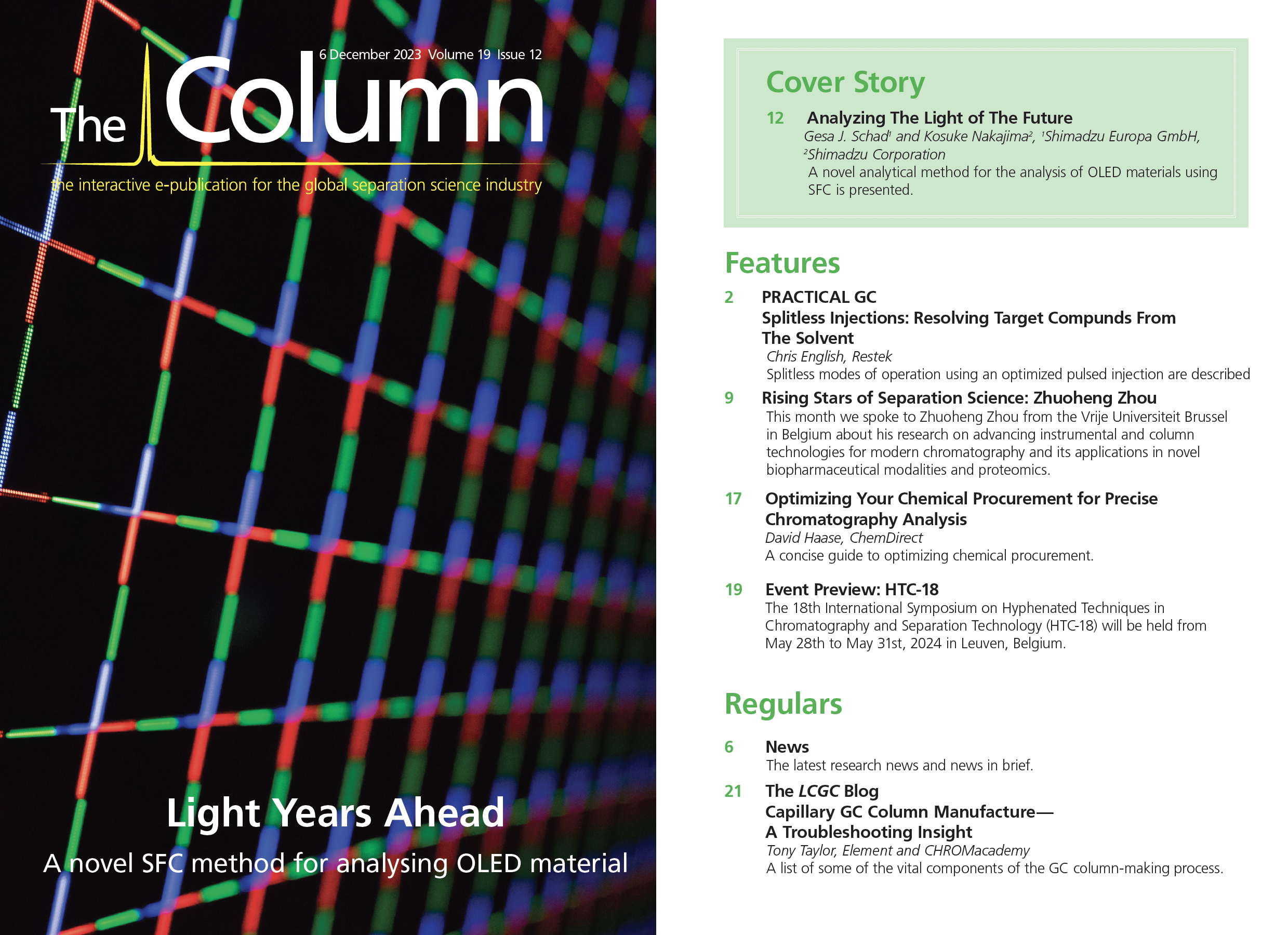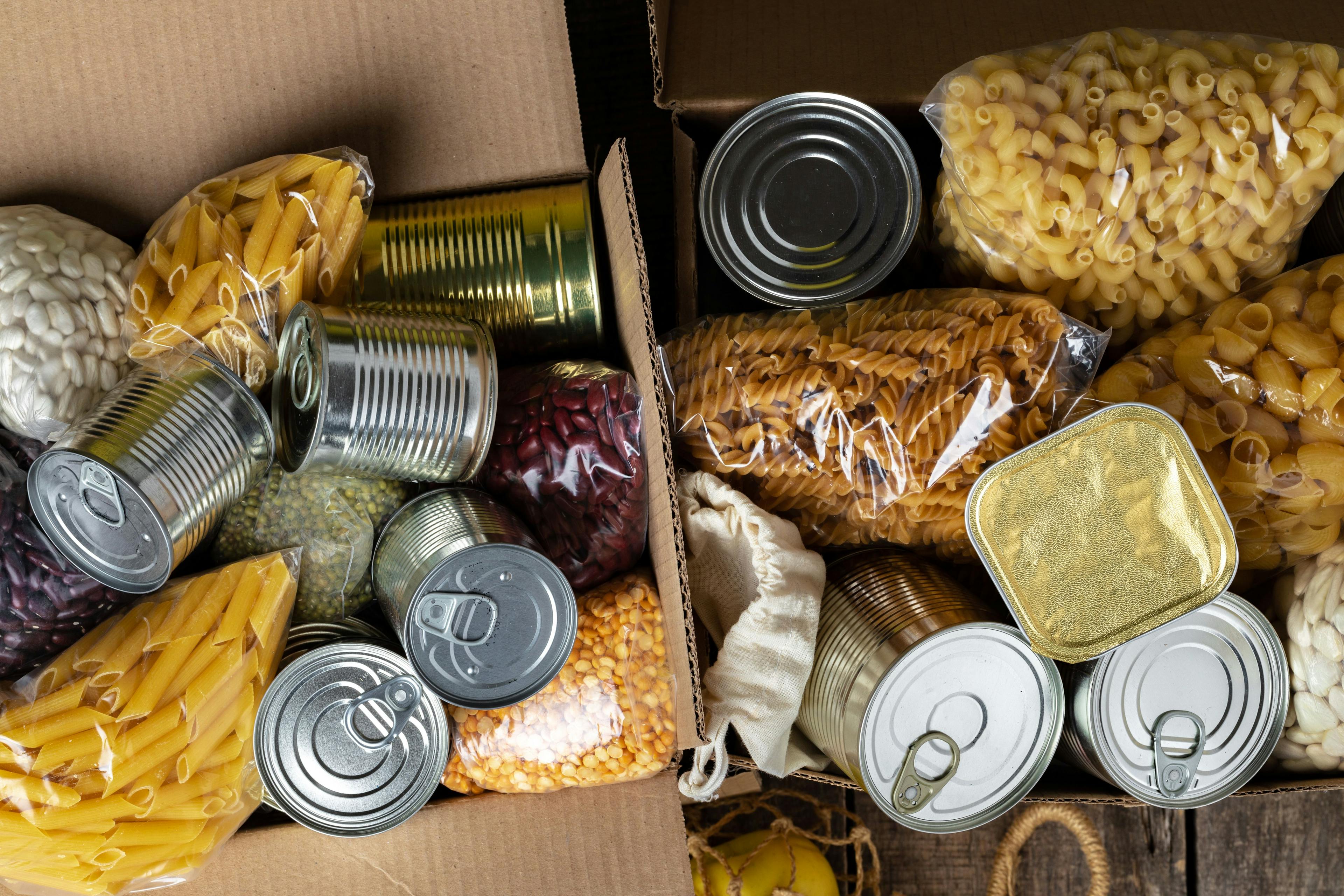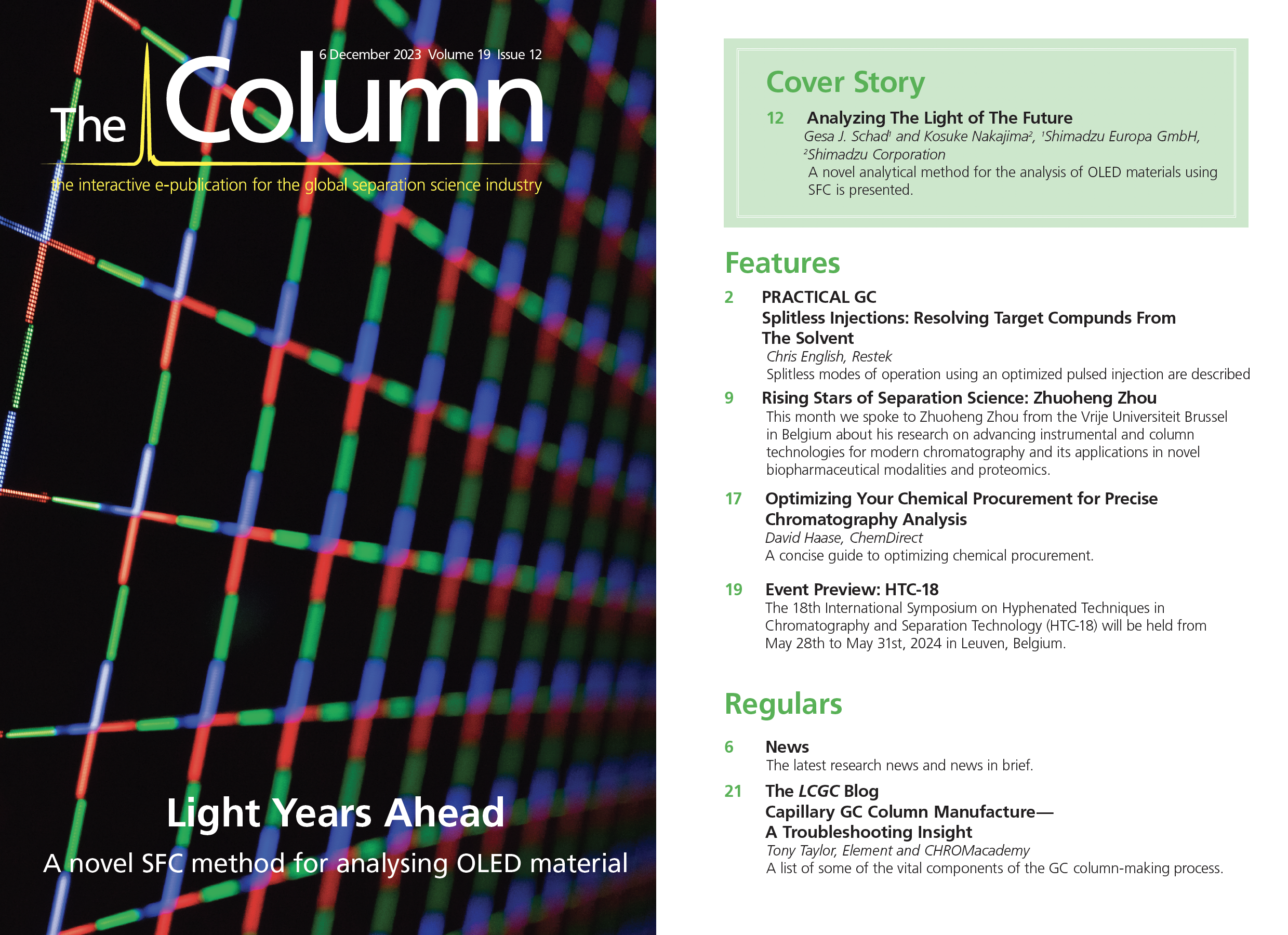Rising Stars of Separation Science: Zhuoheng Zhou
This month we talk to Zhuoheng Zhou from the Vrije Universiteit Brussel in Belgium, about his focus on advancing instrumental and column technologies for modern chromatography and its applications in novel biopharmaceutical modalities and proteomics. We also spoke to him about his work developing a protocol to help with the design of polymer monolithic capillary columns.
Career Timeline:
2019: Received master’s degree, started PhD in engineering sciences, and awarded HTC-16 Tube Award in Ghent, Belgium
2020: Publication of Assessing Effects of Ultrahigh-Pressure Liquid Chromatography Instrument Configuration on Dispersion, System Pressure, and Retention
2023: Publication of A Protocol for Fabrication of Polymer Monolithic Capillary Columns and Tuning the Morphology Targeting High-Resolution Bioanalysis in Gradient-Elution Liquid Chromatography
Papers Mentioned in Interview
(1) Zhou, Z.; De Pra, M.; Steiner, F.; Desmet, G.; Eeltink, S. Assessing Effects of Ultrahigh‑Pressure Liquid Chromatography Instrument Configuration on Dispersion, System Pressure, and Retention. J. Chromatogr. A. 2020, 1634, 461660. DOI: 10.1016/j.chroma.2020.461660
(2) Zhou, Z.; Hilder, E. F.; Eeltink, S. A Protocol for Fabrication of Polymer Monolithic Capillary Columns and Tuning the Morphology Targeting High-Resolution Bioanalysis in Gradient-Elution Liquid Chromatography. J. Sep. Sci. 2023, 46, 2300439. DOI: 10.1002/jssc.202300439
Zhuoheng Zhou was trained as a chemist at Xiamen University (XMU) before he obtained his M.Sc. degree in analytical chemistry at the Environmental Research Institute, National University of Singapore (NUS). He then enrolled in Vrije Universiteit Brussel (VUB) and joined the Bio-Analytical Separation Science (BASS) group as a PhD researcher under the supervision of Sebastiaan Eeltink and Gert Desmet. He is currently conducting his postdoctoral research, which focuses on UHPLC instrumentation and microcolumn technology, and their application in environmental analysis, biopharmaceutical characterization, and proteomic profiling.

Polysorbate Quantification and Degradation Analysis via LC and Charged Aerosol Detection
April 9th 2025Scientists from ThermoFisher Scientific published a review article in the Journal of Chromatography A that provided an overview of HPLC analysis using charged aerosol detection can help with polysorbate quantification.
Removing Double-Stranded RNA Impurities Using Chromatography
April 8th 2025Researchers from Agency for Science, Technology and Research in Singapore recently published a review article exploring how chromatography can be used to remove double-stranded RNA impurities during mRNA therapeutics production.

















